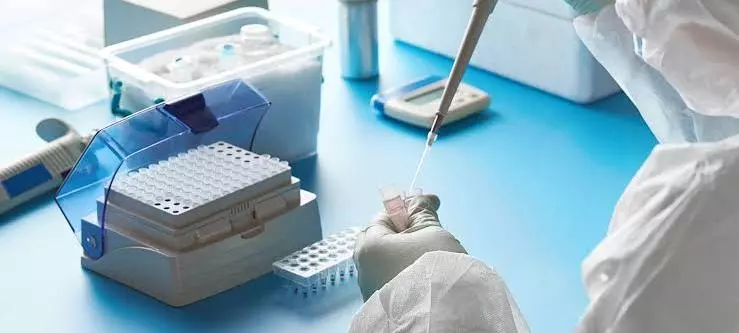
Study finds time of the day influences Covid-19 virus test results
text_fieldsNew York: A recent study has revealed that the Covid test results taken during daytime is different from that at night as the virus might act differently depending on the time of day and the body's circadian rhythms.
The study led by researchers at Vanderbilt University Medical Center showed that people were up to two times as likely to have an accurate positive test result if they tested in the middle of the day compared to at night.
Their results, published in the Journal of Biological Rhythms, indicate that viral load is lower after 8 p.m. As per the study, if people choose to get tested at that time, there could be a higher chance of a false-negative result.
The data support the hypothesis that Covid-19 acts differently in the body based on our natural circadian rhythm, which has also been implied by studies of other viral and bacterial infections.
Covid-19 virus shedding -- when infected cells release infectious virus particles into the blood and mucus -- appears to be more active in the middle of the day due to modulation of the immune system by our biological clock.
"Taking a Covid-19 test at the optimal time of day improves test sensitivity and will help us to be accurate in diagnosing people who may be infected but asymptomatic," said Carl Johnson, Professor of Biological Sciences, at Vanderbilt.
A difference in Covid-19 viral shedding throughout the day is important information that may inform how we test for and treat the virus. The peak shedding in the afternoon, when patients are more likely to interact with others or seek medical care, could also play a role in increasing the spread of the virus in hospitals and the wider community.
However, further research is needed to confirm the diurnal -- meaning active during the day -- nature of SARS-CoV-2, the virus that causes Covid-19, Johnson said.
The researchers believe temporal considerations may be leveraged to maximise the effectiveness of intervention strategies and even vaccine strategies






















